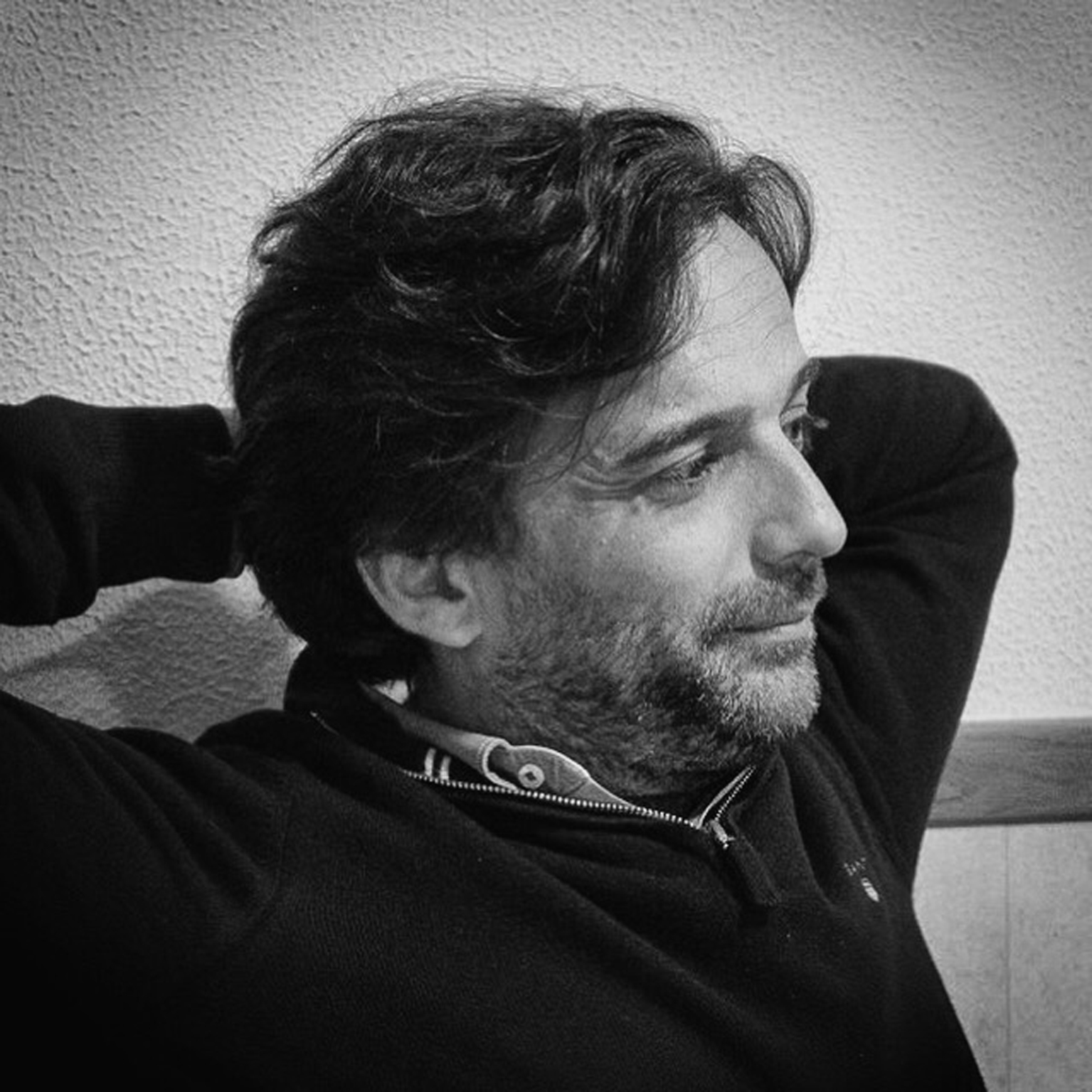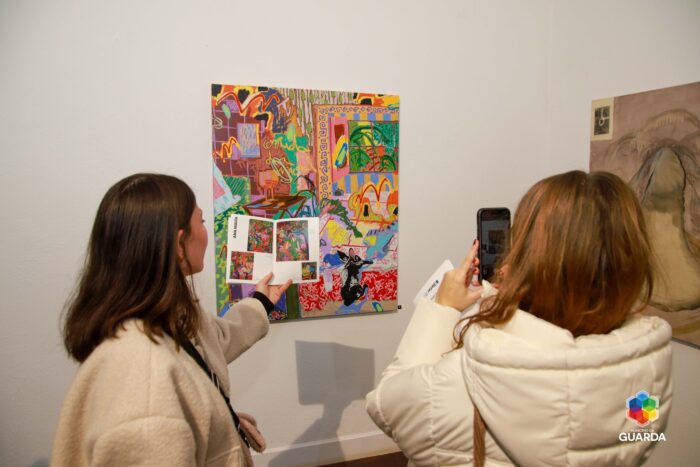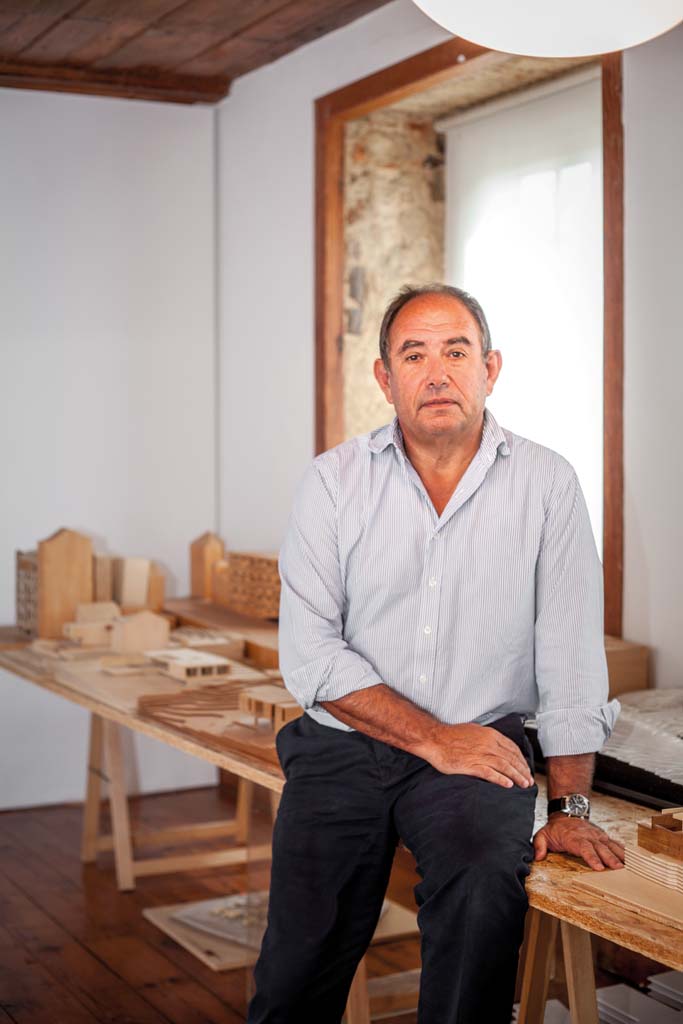A conversation with Arch. Alexandre Berardo

A conversation with Arch. Alexandre Berardo
'In our profession we must have a very comprehensive knowledge of the world and we must have the world to be able to do what we do. (...)
[Unfortunately] there will continue to be no housing because the process takes too long'
Tell us about your career and how you define the way of thinking and doing architecture at Edgeline Arquitectos Associados?
I started with Manuel Sousa Fernandes when I was still studying. Shortly after graduating I went to work at Gonçalo Byrne’s studio, which is a school. Gonçalo’s name is confused with the studio itself. He offers an undeniable quality of work and design. Gonçalo is one of the best national and international architects and has an incredible ability to give and receive. I worked there for 9 years. Then I received an invitation from a colleague to join him. I left at the end of 2008, with the architect Byrne asking me to continue overseeing the work he was finishing on the Pousada do Palácio de Estói. In 2009, the crisis hit and suddenly we had nothing to do. It was very difficult. It wasn’t until 2011 that things got back on track. [At Edgeline], the most important thing is to have a product that we can serve to a client where they feel perfectly integrated and comfortable. That’s what I like.
Has Betar been a good partner?
Betar is, and always will be, my favorite partner for stability. In my final year at university, my colleague João Gois and I, with the support of Professor Luis Manuel Pereira, took part in a tender for a health center that needed specialties. Through João’s father, Alírio Gois, we spoke to José Pedro Venâncio. We weren’t yet architects and Betar opened the door to us. It was an honor, because we knew how important Betar was on the engineering scene in Portugal. When I went to architect Byrne’s studio, my first job was with Miguel Villar. That’s when I realized that he is an exceptional engineer. He sees things that architects can’t see and helps us in a way that isn’t normal. Whenever I can, Betar is my first choice, due to its experience and the excellent relationship with the team. I remember projects with Sérgio Mártires, Maria do Carmo, José Pedro Ferreira… very enriching because they are trustworthy, resilient and persevering people like us, who want to do things properly.
As well as architecture, you’ve been involved in other activities. What drives you?
Although I love what I do, we can’t just focus on what we do professionally. An “other life” helps us define our path as architects. In our profession we must have a very comprehensive knowledge of the world and we must have a world to be able to do what we do. Around the age of 30, I organized a Cycle of Conferences at the headquarters of the Order of Architects, with João Gois and Pedro Sousa, where we invited an architect every month. At the Senior University of Setúbal, they invited me to teach History of Art, but of course I changed that to History of Architecture. Those people had a supreme desire to learn, rather than stay at home, and there was a lot of curiosity about understanding contemporary architecture. Even here, in the studio, I must explain to some clients that we can’t give up our time, because our time will one day be History. Our houses must be from the time of our cell phones and cars full of technology. I recently sat on the National Disciplinary Board of the Order of Architects. It’s very important that architects participate more in the life of the Order, standing for office, presenting proposals, going to congress… The aim is to guarantee good architecture for citizens and we need to understand how it works. We are an introverted class, we don’t communicate well with society. Our profession has gained respect, thanks to personalities such as Álvaro Siza, Eduardo Souto Moura, João Luís Carrilho da Graça, Gonçalo Byrne… who give visibility to what we do, but there need to be a lot of professionals, with quality, who intervene in the territory so that there is better housing, better public buildings, a qualified public space…
What “urgently” needs to be changed in architecture?
Now, there is still poor pay, fees don’t correspond to the work done, prices are crushed…. One situation that needs to end is the disparity in criteria between local authorities. The amount of legislation is absorbing and the electronic platforms and documents required to submit a project to Council A are different from Council B. This is unacceptable. Next, what kills the profession and investment are the licensing times. It’s not acceptable to submit a project to a local authority and wait more than a year. Is there little housing? Of course there is, but what incentive is there for investors to build collective housing? It’s impossible to make a business plan because the deadlines are unmanageable. There will continue to be no housing because the process takes too long. It’s nonsense, what you see in the news, the demonstrations, the government’s impositions, the urgency that there is in housing and then, in the bodies, there is inexplicable slowness and bureaucracy. That’s the scenario we have and it’s very worrying. And it’s a shame. Our architects are good, Portuguese architecture has sensitivity, it’s very humanized and we’re not at all behind the best in Europe…
This interview is part of Artes & Letras Magazine #159, December 2023
Partially automatic translation from portuguese: some expressions may differ from their actual meaning.
News & Interviews
Young Artists Painting Exhibition – Winners of the José Mendonça Prize
The art exhibition that Betar organized in partnership with the Municipality of Guarda has already opened. Read more
A conversation with Eng. José Galvão Teles
'It's not enough to have comfort, you have to use little energy, you have to have things that are effective and simple to maintain, and that age slowly, and these concerns are often used as a false flag' Read more
A conversation with Arch. Frederico Valsassina
‘Architecture is closely linked to the person’s own way of being. I wouldn’t be able to present something that I didn’t feel, and more, that I couldn’t inhabit ’ Read more




